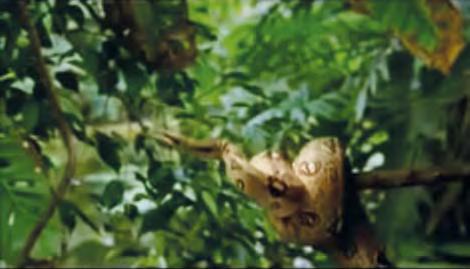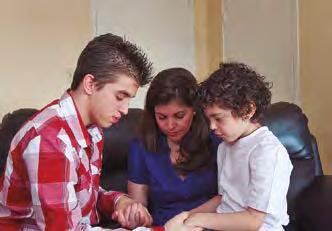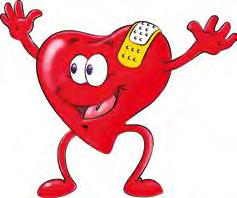IDENTITY
Discover who you are, what personality you were born with, how to develop your character, and key roles in your life.
Having a healthy sense of your own identity gives you authority and confidence.
It allows you to be a person of influence who is not easily swayed by the circumstances or pressures of life.
It releases you to use your unique leadership qualities to impact the world with who you are.

9
Lesson Goal
To discover the power of HOPE and why you need it

Pathways
Comment
What is hope?
Do you think hope is important?
Do you have hope?
How do you increase your hope?
Is there someone you know who gives you hope? Who?
Is there a place that gives you hope?
How do you give hope to others?
Read
My Best Me is a journey in hope. The journey follows a path called social emotional learning with the goal of building a better tomorrow. Hope has proven to be one of the most powerful forces on earth that helps people overcome tremendous adversity and hardship. Hope has the power to put your life on solid ground, meaning that no matter what difficult things come your way, you will be able to overcome. You will learn that hope is not a wishful thinking or an emotion. Hope is measurable. Hope can be learned and it predicts success. You will learn how to build hope in your life and how to love yourself and those around you. You will discover what it means to work well with others, how to appreciate nature and the power of financial knowledge.
Observe
Look at page 3. You can build the power of hope in your life in three simple steps: 1.
The My Best Me lessons are openly discussed in class and at home. Some lessons might cause you to experience some uncomfortable feelings. This is not unusual because lessons can be very personal. However, these feelings might be an indication of some things you or your classmates might be struggling with. Sensations such as:
• Grief: sadness, pain, sorrow, unhappiness, etc.
• Fear: anxiety, nervousness, tension, discomfort, etc.

10
2. 3. Understand
• Anger: aggression, rejection, irritation, resentment, etc.
• Indifference: apathy, disinterest, boredom, weariness, etc.
• Shame: embarrassment, guilt, regret, remorse, etc.
If you or your classmates experience any of these feelings write it down and/or talk about it with your teacher, counselor, parent or guardian. Bad feelings can build up inside and harm your hope. It is healthy to talk about things that worry you with someone you trust. Here are some simple things to think about during the My Best Me lessons:
• Be active and participate. You are building a better future for yourself and others.
• Be kind and thoughtful. Treat others the way you would like to be treated.
• Be trustworthy. Be a person that others trust with personal information.
• Be wise. Know that sometimes it is best to only trust an adult.
• Be a hope giver. Be someone who always helps others find hope and a better future.
Apply
Your teacher will ask everyone in your class to sign a Confidentiality Agreement. That means that everyone promises to actively participate in class, be kind, thoughtful, trustworthy and wise. You are encouraged to sign this Confidentiality Agreement as a pledge to your peers and teacher that you are will always help build hope.


Write - Discover this Textbook

Please go through the pages and answer the following questions. Identify the 5 main topics presented in the textbook, their color, and your definition?
Take some time and watch this video on how hope works and share with your class what your thoughts are.
Reflect
Do you think you have hope? Please explain. Do you think you can increase your hope? How? 4yu.info/?i=95011
Willpower
I will build my hope as I set goals, identify pathways and develop my willpower to find reasons to succeed.
Identity
11
Topic Color Definition 1. 2. 3. 4. 5.
Video: 4yu.info/?i=95011
Lesson Goal

To understand that my skills and intelligence can grow throughout my entire life
Pathways
Video
Take time to watch this clip: 4yu.info/?i=95101
Understand
Over 30 years ago, a college professor named Dr. Carol Dweck began to study why some students are easily when they fail, while others are not as affected. Through lots of studies about students’ behavior, she found that the brain can adapt and grow, and can get “stronger” (smarter), like a muscle. This is called a Growth Mindset. The key was how the students dealt with the let-downs they encountered. This is called grit, which is courage, determination, and the toughness to overcome obstacles.
Cement and sand look the same. The different comes when you add water. Adding water to cement will harden it to concrete. Adding water to sand lets you shape it like sand castles. You can add more sand and water, change the shape and build anything you want. Your brain is like wet sand. You can learn new skills and develop other talents. You can be smarter. You can study to be a good student in any subject. It is called Growth Mindset. You can be who you want to be.
Just like the girl in the video “Soar,” you too can have a Growth Mindset to overcome obstacles. You “grow” your brain and decide to take charge of how you learn!

Read
Michael Jordan is known as one of the greatest basketball players of all time, but was not always a success. In fact, he got cut from his high school varsity team as a sophomore. He had to work very hard to get to where he eventually ended up. He said, “The key to success is failure … I’ve missed more than 9,000 shots in my career. I’ve lost almost 300 games. Twenty-six times, I’ve been trusted to take the game-winning shot and missed. I’ve failed over and over and over again in my life. And that is why I succeed.”
32
4yu.info/?i=95101 discouraged
Watch this video clip: 4yu.info/?i=95102
Michael Jordan had a Growth Mindset. He kept challenging the limitations within him, pressing through disappointments and letdowns. He didn’t view himself as a failure, but used his grit to keep pressing through. We all fall down, but we choose whether or not to get back up and move forward.

We have the choice to see our mistakes as opportunities to get smarter and learn from them. Or, we can believe that we are failures and that we will never understand or conquer whatever is challenging for us.
Write
1.Write down at least one thing that you feel you are talented in or good at: ________
4yu.info/?i=95102

2.Write one thing that you want to improve on or have an interest in:

3.Find someone in your class who is talented in the area you want to improve in. In turn, help someone in your class who wants to explore a talent of yours.
Activity
Have students volunteer to run “mini workshops” in class. For example, a student who is good at drawing can help others draw, a musician can help those who want to learn an instrument, a basketball player can teach a group how to shoot more accurately, etc. Make the groups small enough that every participant gets to practice their new skills. Encourage students to join a group that is not one of their strengths. For instance, if someone is a great athlete, but doesn’t know how to play guitar (but would like to learn), have them take the music workshop. Take time each day to attend your mini workshop.
Reflect
Why is having a Growth Mindset important for my future? How can having a Growth Mindset help me overcome an obstacle I am facing today? Do I feel better about learning a new skill, now that one of my peers has helped me get started? Why or why not?
Willpower
Hea lth
33
When I apply myself, keep trying, and refuse to give up, I will grow and improve.
Lesson Goal
To recognize that humans have the power to use self-control to make their environment a safer place

Pathways
Observe the following images and write the name of who the “architect” of each creation may have been.






What are these constructions used for? Which house is most complex? How? Why?

Write
Look up the definition of the following words:
Instinct:
Intuition:
Inner voice:
Understand
Humans and animals have things in common: they eat, rest, move, mate, and build homes to protect themselves. In addition, they communicate, but in different ways. Even though both humans and animals have ways to communicate, and some animals are extremely intelligent, animals live by instinct and do not have the same capabilities as human beings. Most animals, for example, exhibit “fight or flight” behavior when confronted or threatened. You’ve probably seen a rabbit run away when you approach it, or a bird.
Humans clearly have functions that animals do not, including a free will, the power of choice, and the ability to evaluate and plan, just to name a few. Humans do have some basic instincts that lead them, such as the “fight or flight” reaction when confronted with
48
danger or a perceived threat. However, it is our intuition and inner voice that guides us to ask questions such as:
• Who am I?
• Why am I here?
• What is my purpose?
• Are my actions healthy or unhealthy?
These types of questions allow humans to reason, evaluate, plan and make choices that can go against basic instincts. For example, if you ran away (“flight”) or yelled at your best friend (“fight”) every time you got in an argument with them, would that friendship remain healthy?
*Some of us were exposed to trauma when we were very young (emotional or physical stress), which might lead us to “fight or flee” today. If you suffered from such trauma, tell a trusted adult, so you can get the help you may need.
Watch the video: Is fear “all in our head”?

4yu.info/?i=95171
Role Play
1.Brainstorm situations as a class when students need to practice self-control and use their intuition and inner voice, both in and out of the classroom.
4yu.info/?i=95171

2.In pairs or groups of 3, create a scenario where a student or group of students need to practice self-control. They will need to respond not based on their basic instincts, but rather by following their intuition and inner voice. The first part of the exercise should present the situation where the student(s) did not practice self-control, and the second half should entail the student(s) practicing self-control. Be creative! Present your role plays to the class.
Reflect
How does an animal react when someone or something upsets it?
How do I react when something or someone upsets me? Do I fight or take flight?
What does an animal do when someone mistreats it?
What do I do when someone mistreats me?
Can I change how I react to the people and things around me?
How can I possess self-control rather than yelling or running away?
What emotion or fear makes me want to run away or hide?
What do I do when something causes me to laugh or talk when I shouldn’t?
Willpower
As a human being, I can control my basic instincts and impulses and use my inner voice to make my decisions.
Com munity
49
Lesson Goal
To learn to be proactive and care for the natural environment
Pathways
As I was telling you the other day, I ran across a friend I had not seen in
Sorry to interrupt
Comment
Would you have done anything differently in this situation? Why or why not?
Have you ever thrown trash on the ground? What happened?

Have you seen other people throw trash on the ground?
Do you ever pick up trash you did not throw on the ground?
Is it okay to throw trash on the ground, knowing that someone’s job is to pick it up?
Why or why not?
Understand
Our natural environment not only gives us the resources we need for life, but also provides us with great beauty and opportunities to relax and exercise. Sometimes we are so caught up with ourselves, that we assume that everything will be available and clean for us at the snap of our fingers. The reality is that generally, a small group of people take the responsibility of caring for the environment and maintaining its condition. Imagine what the world would be like if each of us personally became responsible for cleaning whatever is dirty (not only what we littered), and taking care of the world around us. What would happen if we were courageous enough to raise awareness with others, kindly helping them to act in responsible ways toward the care of the natural environment and our community?
Activity
Consider your community. List ways that you have seen people help your community and its resources, or ways people have harmed it.
58
Don’t worry. There are people who are paid to clean up the trash.
Observe
Comment
What is happening in this picture?
Are there consequences for spray painting walls without permission?

Would you be okay with this? Why or why not?
How would you react if this wall was yours?
If any of your friends pressure you to paint on a wall with them, what would you do?
Is graffiti ever okay? Why or why not?
Name some negative and positive aspects of graffiti?
Write


What would an ideal community look like in terms of its natural environment? What would you see and experience there when you go for a walk? What don’t you see there? Write a paragraph in your journal describing your ideal community, and the part you would play in building it. What emotions would you feel after it was built? Consider your current community to help you decide what you would and would not like in your ideal community.
Reflect
What can I do to become more responsible with my natural environment?
How will I stand up for the environment and my community?
How can I encourage others to take better care of our natural environment and community?
How can I be a positive role model for my community?
Willpower
I will be responsible and do what is right in regards to nature and my community.
Environment
59
My Community Helping Harming
Lesson Goal
To learn to recognize the treasures I have, and to be grateful for my life
Pathways
Observe
What needs do you think the people have in the following pictures?






Comment
What are needs?
What kinds of needs do people have?
What are your most important needs?
What things can you live without?
What material things enhance your happiness?


What non-material things enhance your happiness?
What things do you have that others don’t have?
Is it your responsibility to help others around you fulfill their needs? Please explain.
How can you help people who do not have the basic things that you have?




68
Understand
Each day, we have many opportunities to meet the needs of people around us. When we smile, give a compliment, show interest, and stretch out a helping hand, we are fulfilling the needs of others, although we might not be aware of it. When we help others meet their needs, we are also responding to an essential drive embedded in each of us; the need for relationship and connection.
The relationships we have grow when we have a consistent attitude of gratefulness for the abundance we experience in our own life. And here’s a cool truth: the more we give, both materially (things) and emotionally (kindness, care, etc.), the more grateful we will be. That’s because when we realize we have more than enough and we are content with what we have, there is no need to fear lack. Do you know people who may be materially poor, but are joyful and happy, or, maybe, materially rich people who seem unhappy? This is because true joy is not based on material things. It is activated when we “give ourselves away.” The result is that we can operate in a spirit of generosity and openness to the needs of others. The more needs we meet, the more fulfilled we will be, not due to what we get, but what we give.
Comment - think and respond



Who supplies the needy in your community?
Is there enough help for people in need in your community?
Do wealthy people have needs also?
Activity
Choose one specific need of someone in your community: someone at school, in your family, neighborhood, or club. Their need could be related to food, health, drug abuse, education, emotional issues such as loneliness, fear, etc. What can you do to help that person or group of people?
Reflect
What are some needs in my life? Are they true needs, or are they wants?
Do I think I sufficiently appreciate the things I have in my life? How do I show it?
Willpower
I am grateful for the abundance I have and am committed to helping others meet their needs.
Economics
69
Accountable: subject to giving an answer (#77)
Achieve: to carry out successfully; to accomplish (#76)
Adapt: to make fit by modifying (#32)
Addiction: a strong impulse to do, use or indulge in something repeatedly (#36)
Adopted: legally made a son or daughter (#19)
Adversity: a state of serious continued difficulty (#10) (#67)
Allowance: an amount of money that is given to someone regularly or for a specific purpose (#73)
Altered: made different in some way (#14)
Alternate: one that substitutes for another (#21)
Analyzing: to study and determine the relationship of the parts of something (#30)
Ancient: having an existence of many years (#24)
Anxiety: abnormal and overwhelming sense of fear (#30)
Appreciate: to value highly or recognize with gratitude (#69)
Apathy: lack of interest or concern for something (#11)
Architect: a person who designs and guides a plan (#48)
Assets: an owned item of value (#72)
Assigned: to transfer to or appoint duty to someone (#62)
Assume: to believe to be true (#58)
Astute: having the ability to understand things clearly (#72)
Attentive: mindful of the comfort of others (#46)
Attitude: a feeling or emotion toward a fact (#14)
Attractive: appealing or having power to attract (#17)
Attribute: a quality or characteristic belonging to a specific person (#17)
Authority: power to influence or command thought and behavior (#44)
Awareness: knowledge and understanding that something is happening or exists (#50)
Baboon: a large primate of Africa and Southwest Asia (#16)
Balance: stability; evenly weighted (#30)
Biodegrade: to break down by the action of living things (#60)
Biography: a written account of a person’s life (#67)
Blended: mixed together to make one (#19)
Boycott: a refusal to have dealings with a person, store or organization (#66)
Brainstorm: a sudden bright idea (#62)
Budget: the amount of money that is available for or assigned to a particular purpose (#72)
Calculate: to solve by mathematics or by judgment (#23)
78
Capabilities: the state of one’s abilities (#23)
Capital: chief in importance or influence (#72)
Category: a division within a system (#31)
Character: moral excellence and firmness (#77)
Characteristic: a defining trait or quality (#13)
Charitable: full of love and good will toward others (#46)
Civil rights activist: one who fights for the unpolitical rights of citizens (#66)
Collage: a creative work that incorporates various materials (#35)
Commitment: something pledged (#43)
Common: occurs frequently (#28)
Competency: having special skills or abilities (#13)
Complex: hard to separate or solve (#48)
Compliment: an expression of respectful recognition (#69)
Component: an ingredient (#39)
Conduct: a pattern of personal behavior (#21)
Confide: to trust or impart secrets (#15)
Confidence: the quality or state of being certain (#24)
Conscience: conforming to what one considers to be correct (#35)
Confidentiality: keeping another’s secrets or private information (#11)
Conscientious: careful; meticulous (#62)
Consequences: a result following a set of conditions (#30)
Conserving: to keep in a safe or sound state (#60)
Constitute: to legally process (#45)
Constructive: promoting improvement or development (#53)
Consumption: to consume or use something (#29)
Contaminated: made unfit for use (#34)
Contributes: plays a significant part in a result (#45)
Converting: changing from one belief or view to another (#60)
Convictions: strong persuasions or beliefs (#36)
Corrected: to make or set right (#19)
Course: the path over which something moves (#30)
Create: is to produce something from nothing. It is to speak invisible things like thoughts, ideas and imaginations into existence. Words frame the thoughts that create your reality. Life is the culmination of your words. (#4)
Criticism: finding or pointing out the faults of someone (#67)
Cultivate: to prepare; to loosen or break up the soil (#43)
Culture: set of shared attitudes, values and goals (#37)
Deadline: a date or time something must be done (#25)
Decent: conforming to standards of morality; free from obscenity (#63)
Dedicate: commit to a goal; to set apart (#38)
Degradation: decline to a low destitute state (#60)
79
Delay: the act of causing something to occur more slowly than normal (##70)
Dependence: the state of being influenced by another (#36)
Deposited: placed for safekeeping (#72)
Destiny: a determined course of events (#24)
Determination: direction or tendency to a certain end (#32)
Devout: devoted to a pursuit, belief or mode of behavior; warmly sincere (#67)
Diagram: a line drawing made for mathematical or scientific purposes (#51)
Differentiate: to mark or show a difference in (#71)
Diligently: characterized by steady, energetic effort (#63)
Discipline: training that corrects, molds or perfects (#77)
Discouraged: hindered from doing something (#32)
Disinfect: to free from infection (#46)
Distribution: the process of giving out portions (#30)
Drive: an urgent, basic or instinctual need (#67)
Elegance: something that has class or is graceful (#16)
Elements: basic member of a set, the 4 substances believed to compose the physical universe which are air, water, fire and earth (#30), (#56)
Elevate: to lift up or make higher (#18)
Embedded: enclosed closely in a mass (#69)
Emphasizes: highlights or features (#29)
Enabling: to make possible, practical, easy (#30)
Encountered: came upon face-to-face unexpectedly (#32)
Encounters: chance meetings (#36)
Enhance: to raise, increase or improve in value (#29)
Enrich: to add beauty or to enhance (#75)
Entail: include or contain (#49)
Environment: the conditions by which one is surrounded (#45)
Epidemic: contagious disease; characterized by widespread growth (#46)
Era: a period or division of time (#50)
Essential: something necessary and of importance (#69)
Estimate: to determine the approximate size or value, statement of the cost of work to be done (#28), (#73)
Evaluate: to determine the significance, worth, or condition of something or someone (#62)
Exclusive: not including others in participation, leaving others out of participation (#45)
Execute: to carry out fully and completely (#23), (#62)
Exhausted: extremely tired (#30), (#70)
Exhibit: to show publicly (#48)
Expenses: financial burdens or costs (#73)
Exploit: to make use of unfairly for one’s own advantage (#74)
80
Export: to carry or send away (#74)
Exposed: not shielded or protected (#45)
Exposure: the condition of being unprotected (#36)
Extremely: in an extreme manner (#48)
Family: is a household consisting of parents and children living together. Because of life circumstances sometimes there is only one parent or guardian. Family forms culture and determines values. It should be a safe place. (#4)
Fauna: animal life (#75)
Features: parts or characteristics that stand out (#17)
Fertilize: to make an egg or seed able to grow and develop (#43)
Flora: plant, bacterial, or fungal life (#75)
Foster: to give parental care to (#19)
Fragrant: having a sweet or pleasant smell (#22)
Frames of reference: sets of ideas that determine how things are understood (#13)
Gorgeous: having brilliant beauty (#16)
Graffiti: usually unauthorized writing or drawing on a public surface (#59)
Granted: allowed fulfillment of; consented or carried out for a person (#57)
Gratefulness: feeling or showing thanks (#69)
Gratitude: expression of appreciation and thankfulness(#45)
Grit: firmness of mind or spirit (#32)
Groom: to make neat or attractive (#63)
Guilty: responsible for committing a crime (#30)
Gymnastics: physical exercises designed to develop strength and coordination (#76)
Harmony: in accord or agreement (#45)
Haunt: to have a disquieting effect on (#51)
Health: the condition of being sound in body, mind or spirit (#38)
High-performance: better, faster or more efficient than others (#76)
Honor: to regard or treat someone with admiration and respect (#63)
Humble: not proud or assertive; not costly or luxurious (#67)
Ideal: relating to mental images, ideas or concepts (#59)
Identity: being, the character or personality of an individual (#53)
Imitating: the act of being or appearing like (#20)
Impressive: having the power to draw attention, awe or admiration (#53)
Inconsistent: doesn’t match up with another fact or claim (#15)
Indicates: states or points out (#23)
Innate: belonging to an individual from birth (#20)
Inner voice: similar to conscience which is a sensitive regard for fairness or justice (#48)
Inspiration: a person, place or experience that makes someone want to do or create something (#67)
Instinct: inherited tendency to make a response (#20)
81
Institution: an established organization (#44)
Interfere: to take part in the concerns of others (#29)
Interview: a meeting where information is obtained (#15)
Intoxication: decrease in physical and/or mental control due to the use of alcohol or drugs (#36)
Intuition: quick and ready insight (#48)
Invest: to commit something now, such as money, for future benefits (#72)
Involuntarily: done without choice; not subject to control of the will (#36)
Justice: the quality of being impartial and fair (#67)
Label: word or words used to describe or identify (#38)
Landscapes: pictures representing views of nature (#56)
Leadership: is to guide or make a way, to administrate, to manage. The action of leading a group of people or an organization. It is the ability to influence others. (#4)
Legal: according to or established by the law (#44)
Let-downs: failures to support (#32)
Limits: prescribed maximum or minimum amounts (#44)
Littered: scattered trash around in disorder (#58)
Love: is an intense feeling of deep affection. It is a personal decision. It is a decision to give the best you have for the wellbeing of another, independent of merit and without expecting anything in return. True love is unconditional (#4)
Malaria: disease caused by parasites of the blood (#46)
Manufactured: something made from raw materials by hand or by machinery (#74)
Marketing techniques: the processes of promoting, selling and distributing a product (#60)
Mate: either member of a couple, especially a married couple (#48)
Material: being of a physical or worldly nature (#68)
Materialism: a preoccupation with material things instead of intellectual or spiritual things (#60)
Measurable: to determine the capacity or boundaries of something (#10)
Merely: nothing more than (#29), (#60)
Moral: relating to right and wrong in behavior (#20)
Mortgage: a loan and legal contract to finance the purchase of a home (#73)
Namib Desert: a physiographic province of South Africa which occupies an area of 31,200 square miles (#16)
Non-material: not of physical nature but of mental or spiritual nature (#68)
Non-renewable: not capable of being renewed (#57)
Nurture: training or upbringing (#35)
Observer: someone who views or watches (#46)
Obstacles: something that stops or blocks progress, achievement (#25), (#66)
Optimism: to anticipate the best possible outcome (#24)
82
Orators: one who delivers a message such as a public speaker (#66)
Origin: the point at which something begins (#45)
Original: a work composed firsthand; that from which a copy is made (#57)
Parameters: limits or boundaries of a system (#36)
Passion: intense feeling or conviction (#25)
Patiently: with calmness or without complaint in spite of difficulties (#70)
Peer pressure: feeling like you have to do the same things as others your age in order to be liked or accepted (#36)
Perceived: how something or someone is seen or thought of (#49)
Permanent: continuing or enduring without change (#51)
Persevere: to carry on in spite of opposition or discouragement (#66)
Persistent: continuing without change in structure or function (#66)
Personality: a set of traits specific to an individual (#13)
Posture: your position, state or condition (#17)
Potential: a quality that something has that can be developed to make it better (#75)
Power: possession of control, authority or influence over others (#44)
Practitioner: someone who practices as a doctor practices medicine (#46)
Precisely: exactly (#31)
Predicts: to tell something in advance (#10)
Prevailed: became effective; came out on top (#66)
Prevention: the act of hindering or stopping something (#46)
Previous: the one before this one (#19)
Privilege: right or immunity granted for advantage or favor (#29)
Proactive: acting in anticipation of future problems or changes (#58)
Processes: series of actions and operations with an end goal in mind (#66)
Procrastinate: to put off intentionally the doing of something that should be done (#70)
Produce: make or manufacture from components or raw materials, it is to generate, to make, to yield or give results. Small things can produce great results. Inside every seed is the image of a plant, but not just one plant, acres of plants or trees. (#4)
Products: something that is marketed or sold (#56)
Promote: to advance in rank or honor (#38)
Promptly: without delay; very quickly or immediately (#71)
Proportion: proper or equal share (#30)
Prosper: to become strong and flourishing (#75)
Purpose: is the reason for which something is done or created or for which something exists, it gives direction. When purpose is known every action can be judged as to whether it is on purpose or off purpose. Living on purpose saves time and hastens success. Purpose is why we have destiny. Purpose gives intentionally and avoids abuse and misuse. (#4)
Pursue: to go after; to go in search of (#67)
83
Qualities: degrees of excellence (#23)
Raw materials: material that can be converted into a new and useful product (#74)
Realigned: reorganized or made into a new group (#14)
Reasonable: not extreme or excessive (#71)
Recording: visual and/or audio footprint (#20)
Recycle: to reuse or adapt to a new use (#60)
Reduce: to decrease in size, amount or number (#60)
Refined: precise; exact (#77)
Reflective: thinking back on something (#15)
Regimen: a systematic plan; a regular course of action (#77)
Reinforce: to strengthen by additional support (#44)
Rejected: not accepted or approved of (#19)
Relax: to cast off tension or anxiety (#58)
Remorse: strong feeling of regret for wrong action (#11)
Renewable: capable of being replaced or renewed (#57)
Rent: the amount paid to the property owner for use of the property (#73)
Representing: serving as an example of something or someone (#43)
Resentment: feeling of displeasure due to a wrong action or insult (#11)
Resistance: ability to withstand or oppose (#67)
Resources: a source of supply or support (#56)
Respect: high or special regard (#30)
Responsibilities: duties or tasks that you are required or expected to do (#31)
Responsible: able to choose for yourself between right and wrong (#38)
Retirement: remove yourself from active working life (#72)
Reuse: to use again, sometimes in a different way (#60)
Revenue: the total income produced by a given source (#74)
Revise: to look over again in order to correct or improve (#66)
Right: something to which one has a just claim (#44)
Righteousness: conduct that conforms to a moral standard (#67)
Role models: people whose behavior is imitated by others (#53)
Sacrifices: the act of giving up something that you want to keep (#76)
Savannah: a land of warm regions (as Africa) that is covered with grass and only a few shrubs and trees (#16)
Scenario: a sequence of events especially when imagined (#49)
Scrumptious: delicious, delightful (#22)
Segregation: the separation or isolation of a specific group of people; this usually includes social barriers and discrimination (#66)
Self-control: restraint exercised over one’s impulses, emotions or desires (#49)
Sensations: recognition of a feeling (#10)
84
Siblings: a group of at least two who have one or both parents the same (#16)
Social emotional learning: knowledge and skills necessary to live peacefully within yourself and with those around you (#10)
Social networks: online sites or services by which people create and maintain relationships (#50)
Social security: a social insurance program for all retired and disabled people (#73)
Sprout: to send out new growth; to spring up (#43)
Steward: one who acts as a manager, such as being a good steward of your money (#74)
Strategies: careful plans or methods (#37)
Strive: to devote serious effort or energy (#66)
Structures: organizations of parts (#18)
Subconscious: existing in the mind (#14)
Substance abuse: excessive use of a drug such as alcohol or narcotics (#36)
Sufficiently: to have enough to meet the needs of a situation (#69)
Surge: to rise suddenly to an abnormal level (#22)
Surpass: to become better than; to go beyond the reach (#77)
Sustains: gives support to or bears up under (#62)
Symbol: something that stands for or suggests something else (#43)
Talents: special creative, athletic or artistic qualities (#23)
Taxes: charges of money on property for public purposes (#73)
Tend: to apply oneself to the care of; to watch over (#71)
Tension: the act of stretching; a state of hostility between individuals or groups (#66)
Tentative: hesitant or uncertain (#76)
Threatened: having an uncertain chance of continued survival (#48)
Timeframe: a period of time in respect to an action or project (#71)
Toxins: poisonous substance that is very unstable in human tissues (#39)
Traditional: handed down from age to age; adhering to past practices (#76)
Traits: an inherited quality (#17)
Transformation: the conversion of changing one configuration or expression to another (#66)
Transpired: came to light; took place (#53)
Trauma: an emotional upset (#49)
Typical: conforming to a type (#44)
Undermine: to weaken or ruin by degrees (#38)
Unfavorably: opposed or not pleased (#53)
Unfortunate: unsuccessful or regrettable (#31)
Unyielding: lack of flexibility (#24)
Utilizing: to make use of (#60)
Virtual: occurring or existing primarily online (#50)
Virtually: almost entirely (#18)
Vision: the act or power of imagination (#24)
Vivid expectations: a clear impression of end results (#24)
85
Wealthy: having an abundance or ample supply (#69)
Well-founded: based on excellent reasoning, information and judgment (#24)
Wellness: the quality of being in good health as a result of a goal (#39)
Wholeness: having all its proper parts (#29)
Work: is activity involving mental or physical effort done in order to achieve a purpose, it is to serve. It is a way to share your unique strengths, abilities, knowledge and ideas. People that make the most money have found ways to serve the most people. (#4)
World Health Organization (WHO): a specialized agency of the United Nations whose mission is to prevent the international spread of diseases (#29)
86


87
Bullying/Fear
Remedy Live
Text: Remedy to 494949
General Assistance
211.org
Phone: 211
Runaway Youth
Boystown
Phone: 800-448-3000
Eating Disorders
Timberline Knolls
Phone: 855-278-7960
HOPE Line
Phone or text: 919-231-4525 Call:
1-877-2325-4525
Violence
Family Violence Prevention Center
Phone: 210-733-8810
Suicide, Depression, or Self-harm
Children of the Night
Phone: 800-551-1300
Child Sexual Abuse
Childhelp National Child Abuse Hotline

Phone: 800-422-4453






















































